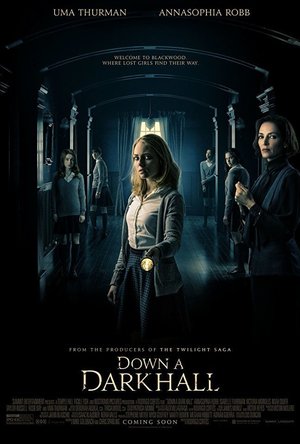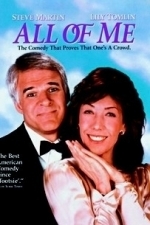
Baby Pics - Photo Editor
Photo & Video and Lifestyle
App
*‘A must have for new parents’ - Pregnancy & Newborn magazine* *‘The perfect pregnancy app for...

Cute Emoticons for WhatsApp, LINE, Messages, WeChat & Kik Messenger - Animation Emojis
Lifestyle and Entertainment
App
Cute Emoticons - Use 5000 Cute Emoticons & Gif Animation Cute Emoticons in your Messages, Emails,...

Goat Rampage
Games
App
The Goat Rampage The most ridiculous animal simulator. You're just a stupid Goat, but you're about...
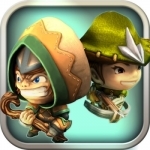
Fantashooting
Games and Entertainment
App
No. 1 iPhone game in Hong Kong, No. 1 iPhone game in Taiwan, No. 1 iPhone game in Singapore, No. 1...
BookwormLea (3034 KP) rated Down a Dark Hall (2018) in Movies
Jul 26, 2020
The general plot is that after her father dies when she's young, Katherine slowly becomes the stereotypical angry teen who lets the world know she hates it by letting it burn. She gets made to go to therapy after claiming she sees her father (which she does, because we watched his spirit say goodbye). She is invited to Blackwood. A mysteriously remote mansion home to 6 even more mysterious teachers, including Madame Duret, the headmistress. Kat is joined by 4 other girls of a seemingly lost cause. Duret calls them 'gifted' and 'misunderstood'. They are taught the usual lessons, Maths and English, music and art. And with the exception of Veronica (the literal definition of teenage nightmare) they all seem to excel at one thing in particular. Our lead girl Kat, music, specifically piano. She is taught by Durets son, Jules. Everything seems to be going well, one girl paints like a prodigy, another writes poems that could rock Shakespeares world, Kat does her piano thing rivalling Mozart and the last (who could basically still be in the role of Esther in Orphan) is solving maths problems that could save the world. That is until they start seeing shadows of people who aren't there, voices in their heads and they physically can't stop doing what they are gifted at, to the point where they don't eat or leave their rooms. After finding old files of other girls in similar situations who died, Kat and Veronica try to do something about it. Veronica is taken away and Kat is suddenly a Piano prodigy, almost possessed by the greats themselves. Yeah 'almost'. Because that's exactly what happened. They have been used as vessels for history's greatest men and women, who died too soon. How fantastic is that? If this movie was made better, that is a brilliant plot! But of course everything goes bad, just like their ghosts, the girls start dropping like flies, Poem girl kills herself, Painter literally starves herself, and crazy math girl is on the verge of escaping when she becomes enthralled in the beauty of the flames. Flames caused by Kat when she saves Veronica from being possessed by some weird demon thing who really doesn't get explained. They almost get out. Duret gets possseded and burned by the spirits she conjured. All the teachers die and Jules is crushed when he saves Kat. Of course there has to be surviors so Kat and Veronica get out, where on the brink of death, Kat sees her father again who makes her come back to life after she tries to go with him.
Overall, not a terrible movie, but if it had been made better, would probably be one of my favourite plots ever!
BankofMarquis (1832 KP) rated All of Me (1984) in Movies
Jul 28, 2020
Starting with THE JERK (1979), Martin and Reiner would make 4 films together the last of which was the 1984 comedy ALL OF ME starring Martin and Lilly Tomlin. And like all Reiner/Martin comedies this one is smartly written with heart and a physically comedic performance by Martin that must be seen to believed.
Martin stars as Lawyer Martin Cobb, an aspiring musician who views his lawyer job as a means to support his dream of becoming a musician. Lilly Tomlin co-stars as one of Martin's clients - a dour, serious millionaire who's dying wish is to have her soul transferred into the body of a younger woman. When the transfer goes wrong, Tomlin finds herself inside Martin's body and the two polar opposites spar each other whilst inside the same body.
A pretty ridiculous premise that is executed wonderfully under the watchful Direction of Reiner. He pushes the premise far - but not too far - focusing (wisely) most of the attention of this movie on Martin and his body's maniacal behavior as both Martin and Tomlin wrestle for control of his body.
Martin, of course, is perfectly cast in a role that was tailor made for him. His physical comedy skills are well used by Reiner and the scene of Martin walking down the street in control of the left side of his body while Tomlin is in control of the right side of his body is worth the price of admission right there. But Martin brings a heart and warmth to his character as well as his well known personae of a person who thinks he is the only sane one in the room - where, in fact, he is the INSANE one.
Tomlin fares less well in her role - being trapped (literally) inside Martin's body and is only seen as reflections in a mirror. Here character is the polar opposite of Martin's, so while Martin is "wild and crazy", she is dour and buttoned up - and this doesn't do her any favors.
Special notice needs to be made of Richard Libertini's turn as Prahka Lasa, the well-meaning "yogi" who is the conduit of the body switching soul. His limited English, earnest and well meaning almost steals the film from Martin.
All in all, an enjoyable evening at the movies which showcases Reiner's ability as a Director and Martin's ability as a gifted, physical comedian very well.
Letter Grade: B+
7 1/2 stars (out of 10) and you can take that to the Bank(ofMarquis)
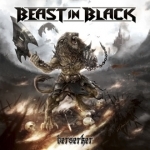
Berserker by Beast in Black
Album Watch
The metal world was in rage when Anton Kabanen parted ways with his former band BATTLE BEAST back in...
Metal
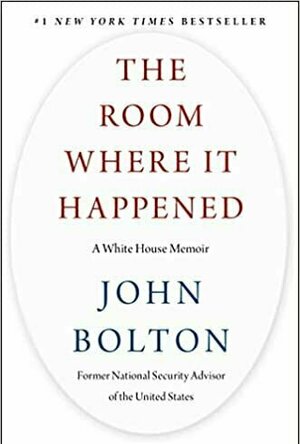
The Room Where It Happened
Book
As President Trump’s National Security Advisor, John Bolton spent many of his 453 days in the room...

3000+ Dessert Recipes
Food & Drink and Education
App
The fondant is the thing which brings a lot of beauty in dessert cooking – it is the thing used...

Birthday Sweet - Birthday calendar & reminder for Facebook
Catalogs and Social Networking
App
The best, cleanest and most powerful Birthday Calendar / Reminder / Countdown app on the App Store,...
